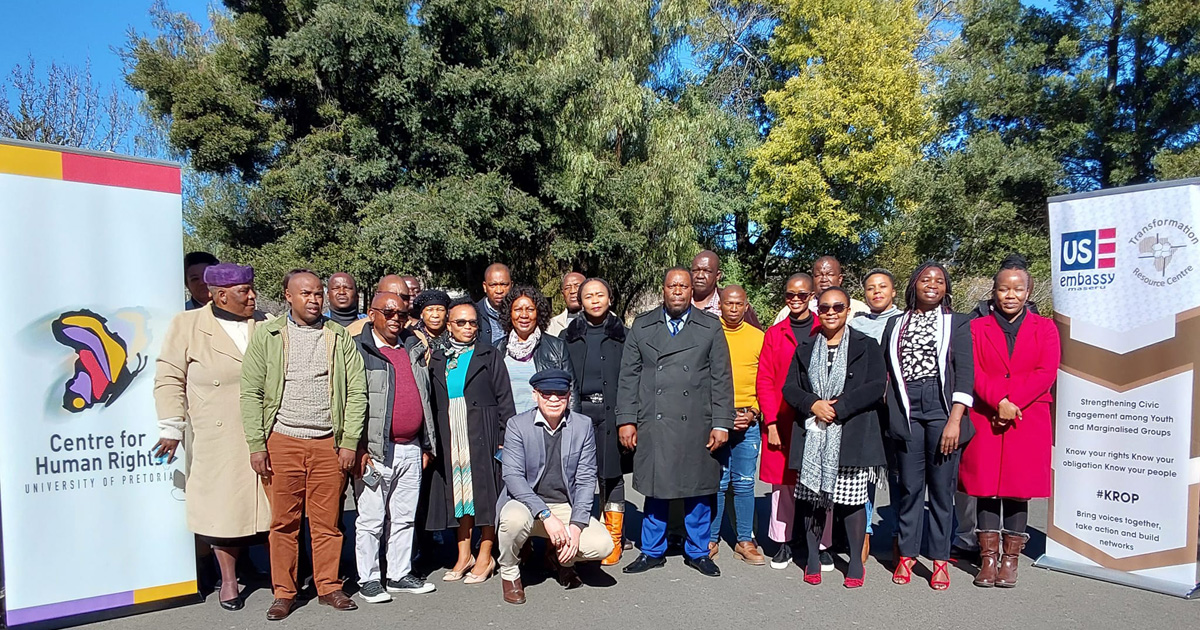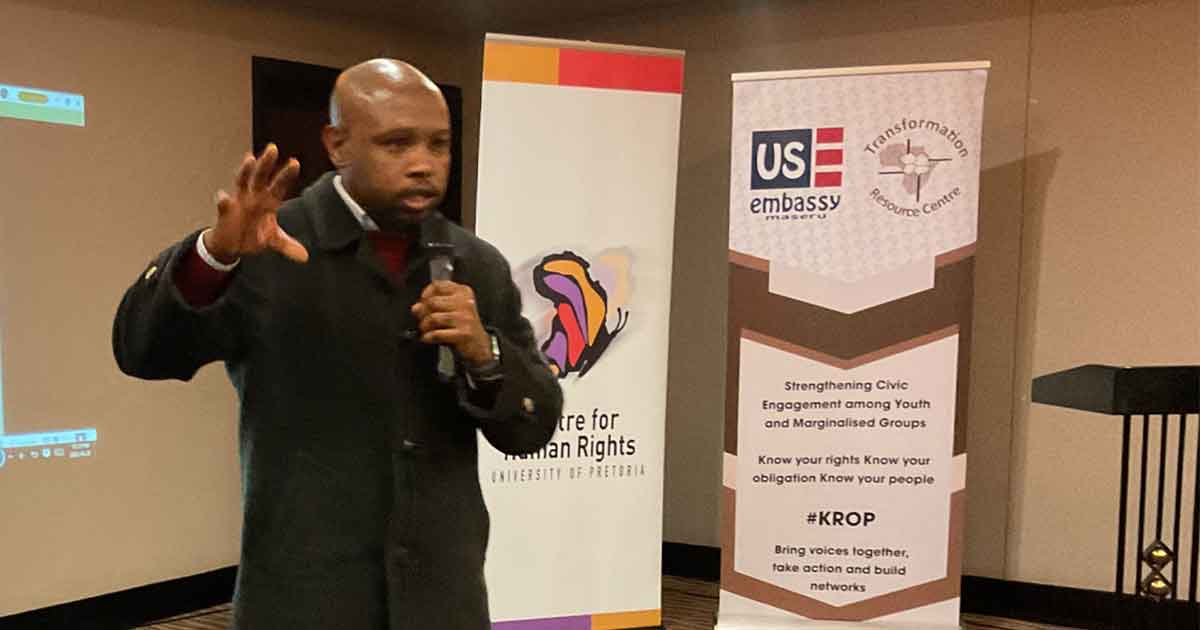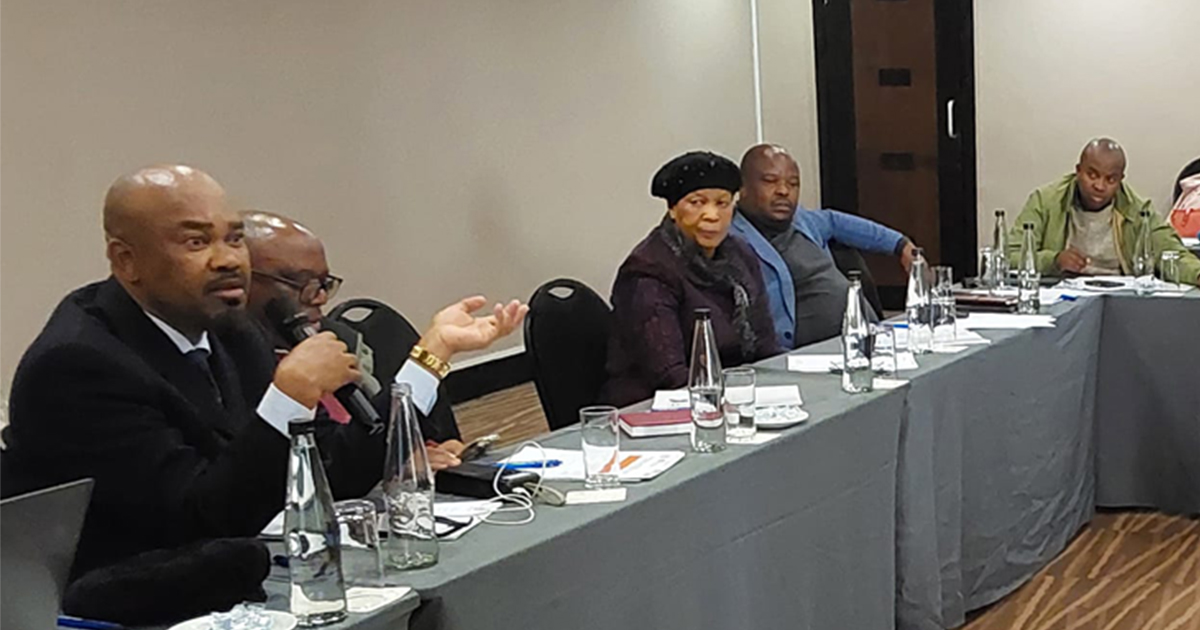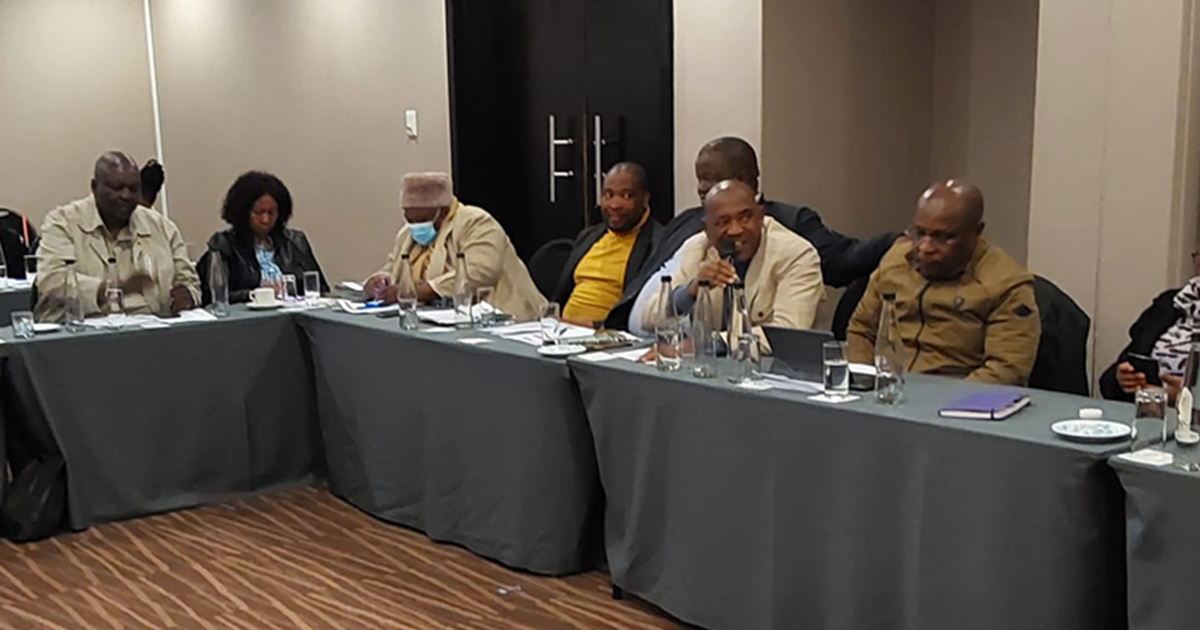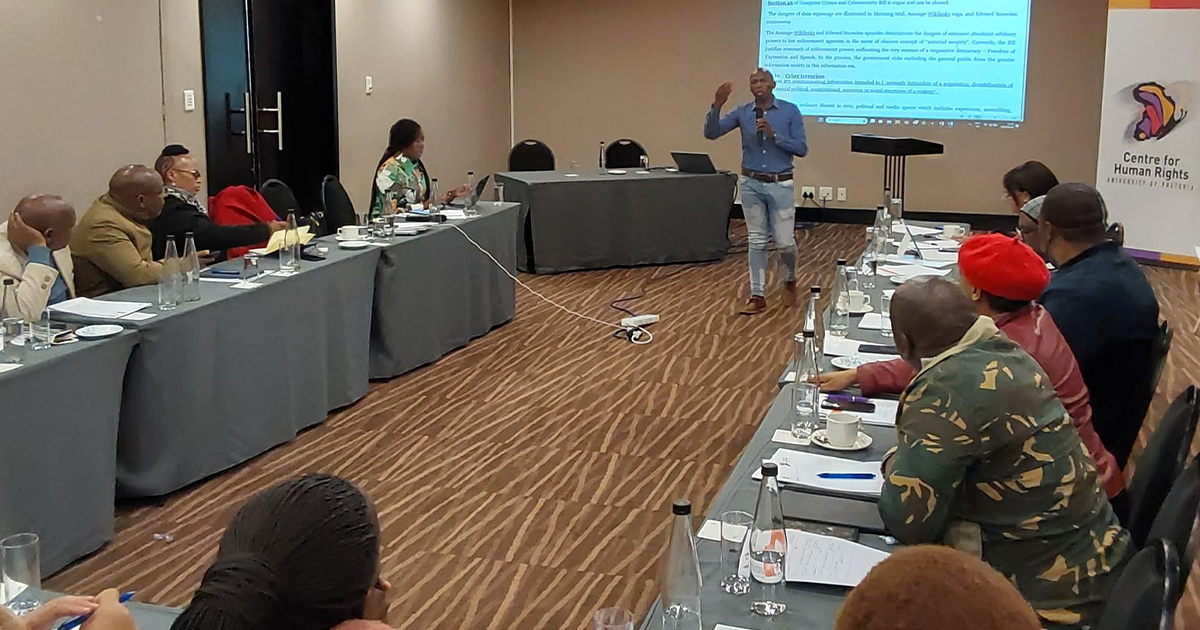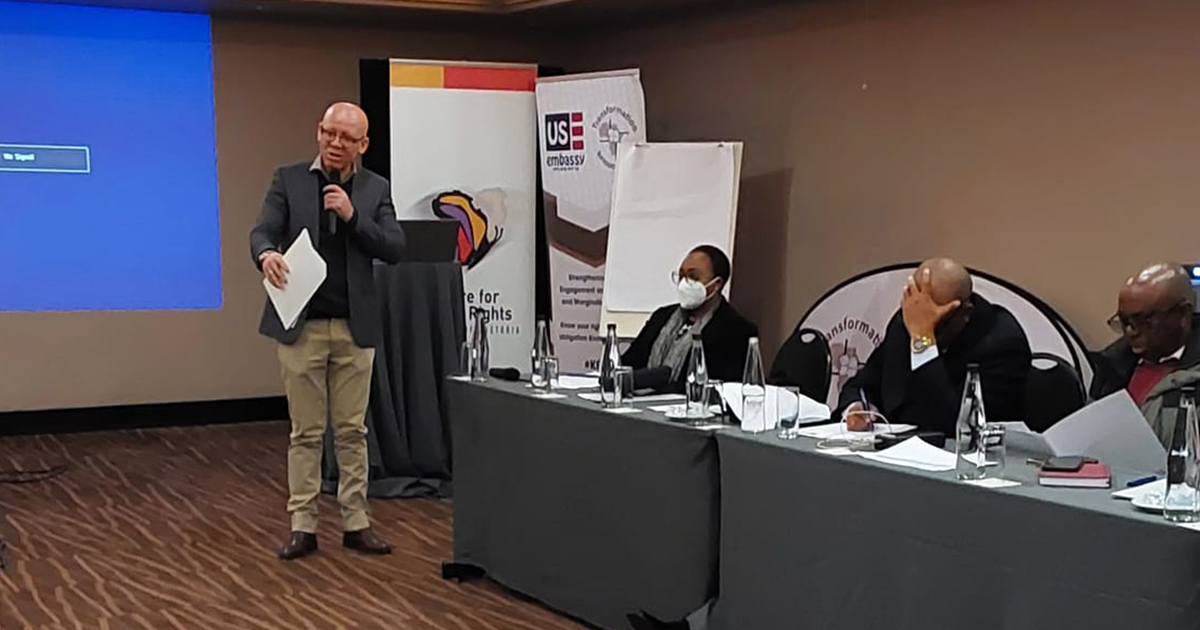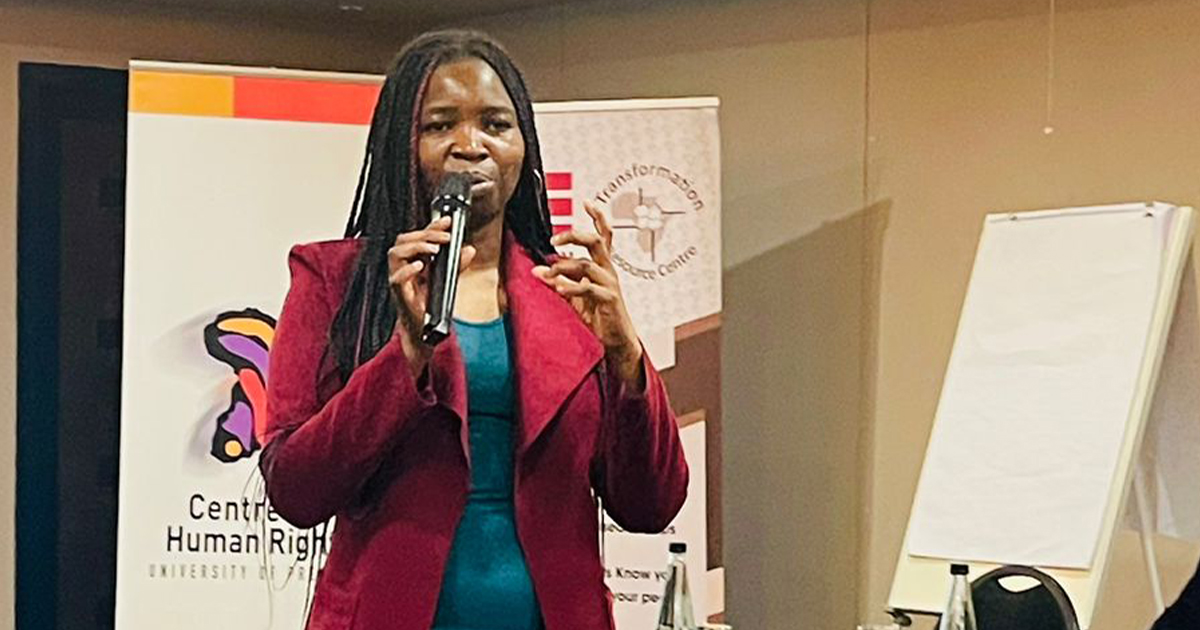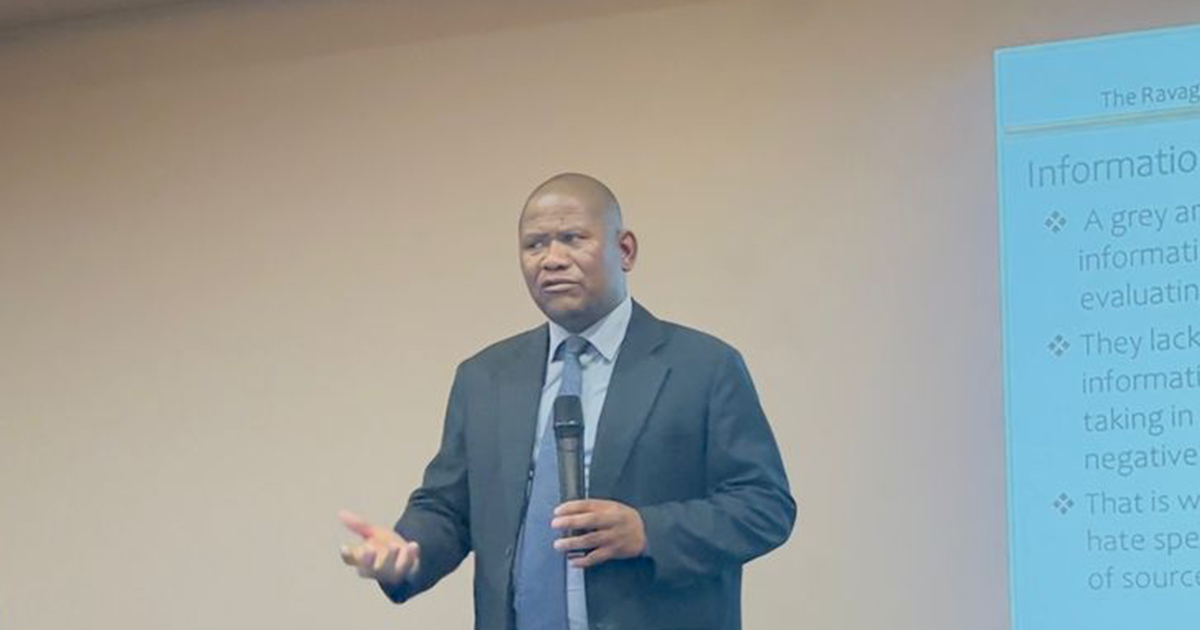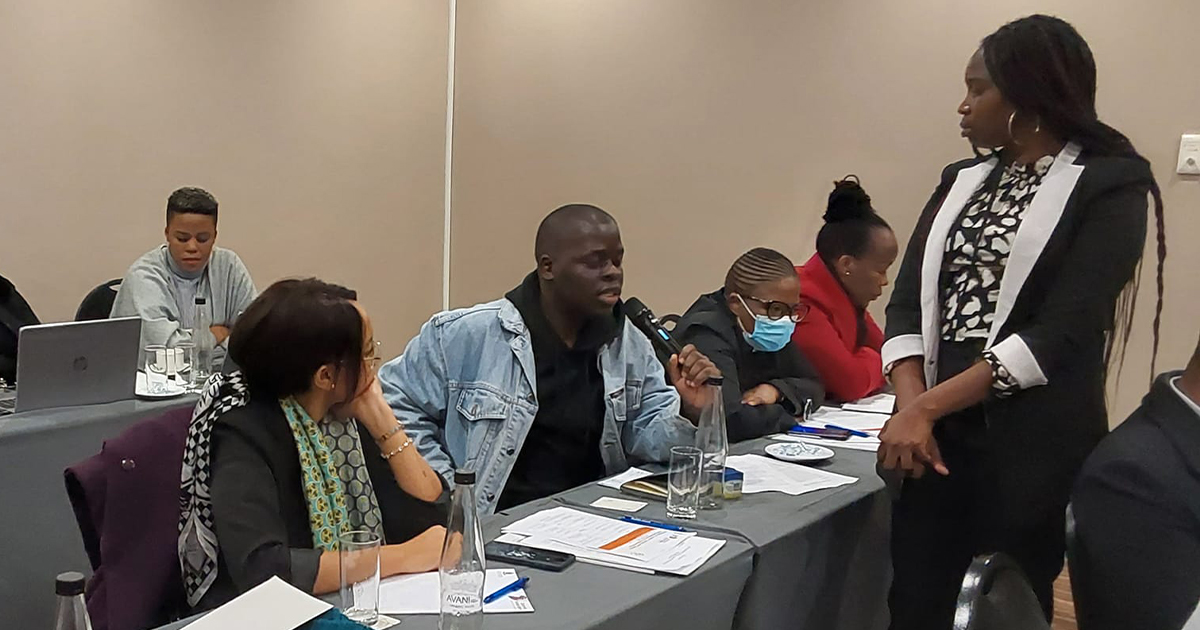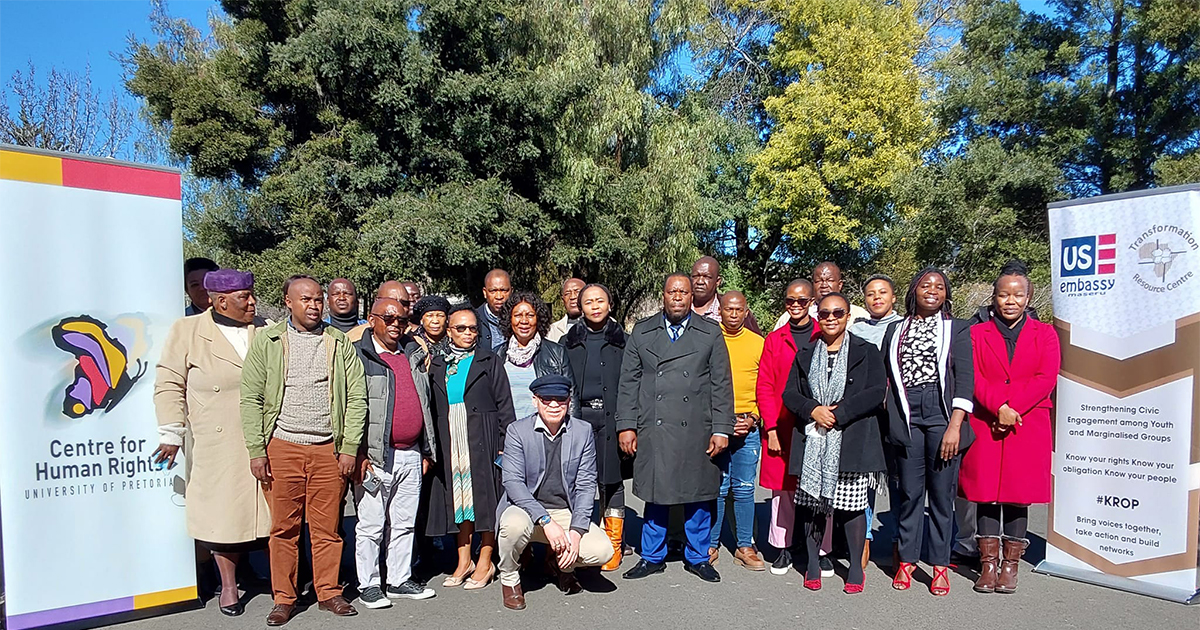From the 20th to the 22nd of June 2023, the University of Pretoria’s (UP) faculty of law, Centre for Human Rights’(CHR), Expression, Information and Digital Rights Unit, in collaboration with the Transformation Resource Centre (TRC), hosted a digital rights capacity-building workshop for parliamentarians in Maseru, Lesotho.
The training’s overall objective was to enhance interest and awareness on digital rights amongst parliamentarians in Lesotho. The training also provided guidance to parliamentarians in adopting human rights-based approaches when formulating legislation that has elements of the intersection between technology and society. Hlengiwe Dube (Centre for Human Rights), Mokitimi Tsosane (TRC), Mzimkhulu Sithetho and Lekhetho Ntsukunyane (MISA Lesotho), Sibongile Mokapane (Politics4Her) and Tlhaloso Mpopo from the Centre for Teaching & Learning of the National University of Lesotho, facilitated the different training sessions.
The training was anchored on the international human rights principle ‘that the same rights that people have offline should be protected online’. The programme covered digital rights in general and Lesotho in particular, including opportunities and challenges in the realisation of digital rights. The themes covered included Internet access, vulnerable and marginalised groups in the digital age (women, children, rural communities, persons with disabilities), cybersecurity and cybercrimes, privacy and data protection, emerging technologies and disinformation. The session on the Computer Crimes and Cyber Security Bill centred on the substantive provisions and its negative implications on fundamental freedoms such as freedom of expression. It was proposed that the Bill cannot be passed in its current form. More consultations are required to initiate the proposed revisions. The sessions for vulnerable and marginalised groups focused on digital inclusion, empowerment and digital pitfalls such as technology-facilitated violated violence.
At the end of the training, organisers and participants concurred that such training programmes should be continued and more consultative processes and platforms for engagement should be created to enable continued engagement on digital rights. It was also agreed that such training initiatives should take a multi-stakeholder approach, with the inclusion of other stakeholders such as the executive arm of the government. The parliamentarians also proposed measures such as legislative and policy reform in the protection and promotion of digital rights. In addressing the needs of marginalised and underserved communities, the proposals included public-private partnerships in tackling the infrastructural gaps that are a key challenge for these communities.
The training of parliamentarians in Lesotho is part of the Digital Rights in Southern Africa project that the Expression, Information and Digital Rights Unit initiated in 2022. The project involves a research and advocacy component. Under the research component, there was the development of ‘The Digital Rights Landscape In Southern Africa’ report, which is an assessment of the status of digital rights in Southern Africa. The report focused on various themes: access to the internet; privacy and data protection; regulation of emerging technologies; restrictions of freedom of expression online; media freedom and regulation; and the rights of vulnerable and marginalised groups in the digital age, including digital inclusion. Subsequent to its launch, the Centre for Human Rights hosted advocacy and capacity-building workshops to enhance the capacity of selected stakeholders in advocating for the promotion and protection of digital rights. The workshops were also for raising awareness on digital rights in the sub-region. The workshops targeted Civil Society Organizations (CSOs), government officials, and National Human Rights institutions (NHRIs).
The project is supported by USAID’s Advancing Rights in Southern Africa (ARISA) programme. The ARISA programme aims to improve the recognition, awareness, and enforcement of human rights in Southern Africa and a cross-cutting emphasis on protecting the region’s most vulnerable and marginalised groups, including indigenous peoples, women, and youth.
For more information please contact:
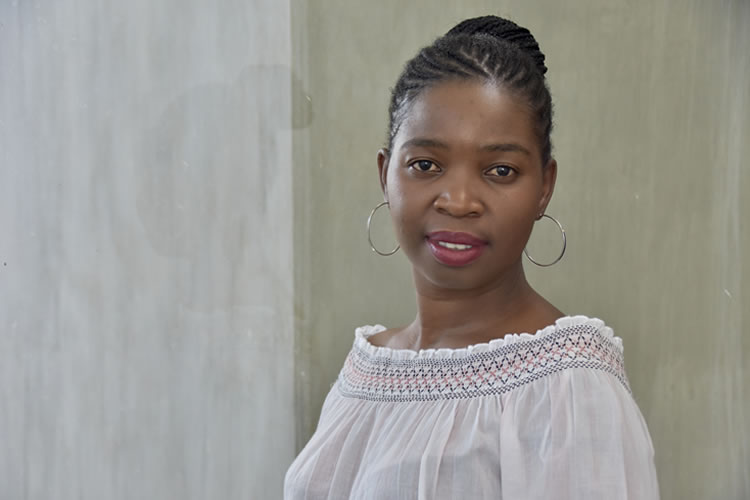
Expression, Information and Digital Rights Unit
Tel: +27 (0) 12 420 4199
Fax: +27 (0) 86 580 5743
hlengiwe.dube@up.ac.za

Expression, Information and Digital Rights Unit
Tel: +27 (0) 12 420 3810
Fax: +27 (0) 86 580 5743
Ompha.Tshamano@up.ac.za

